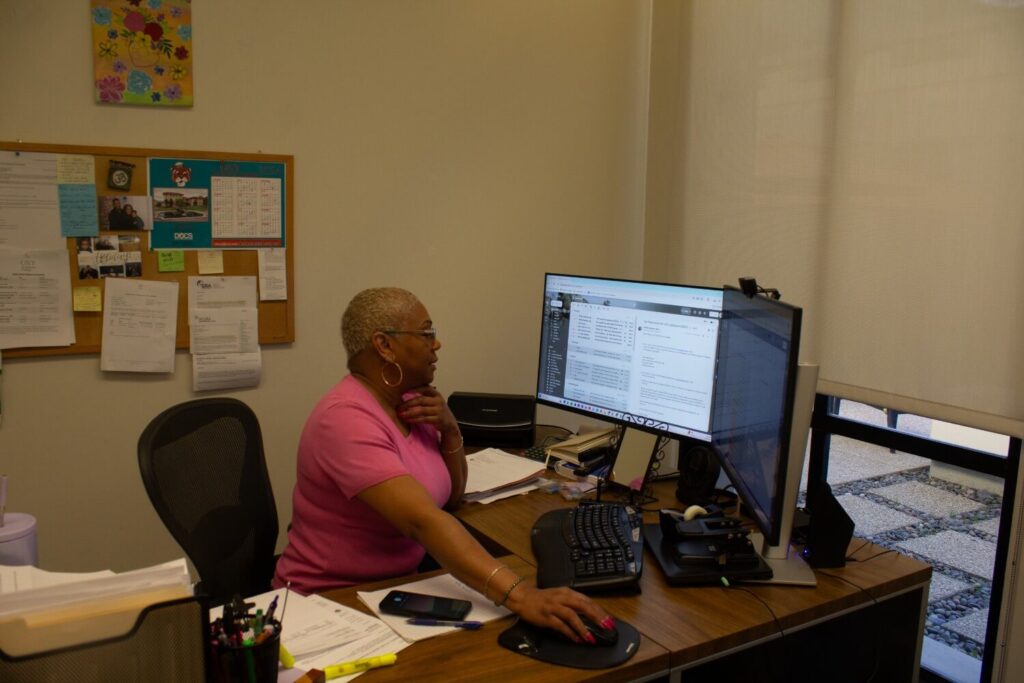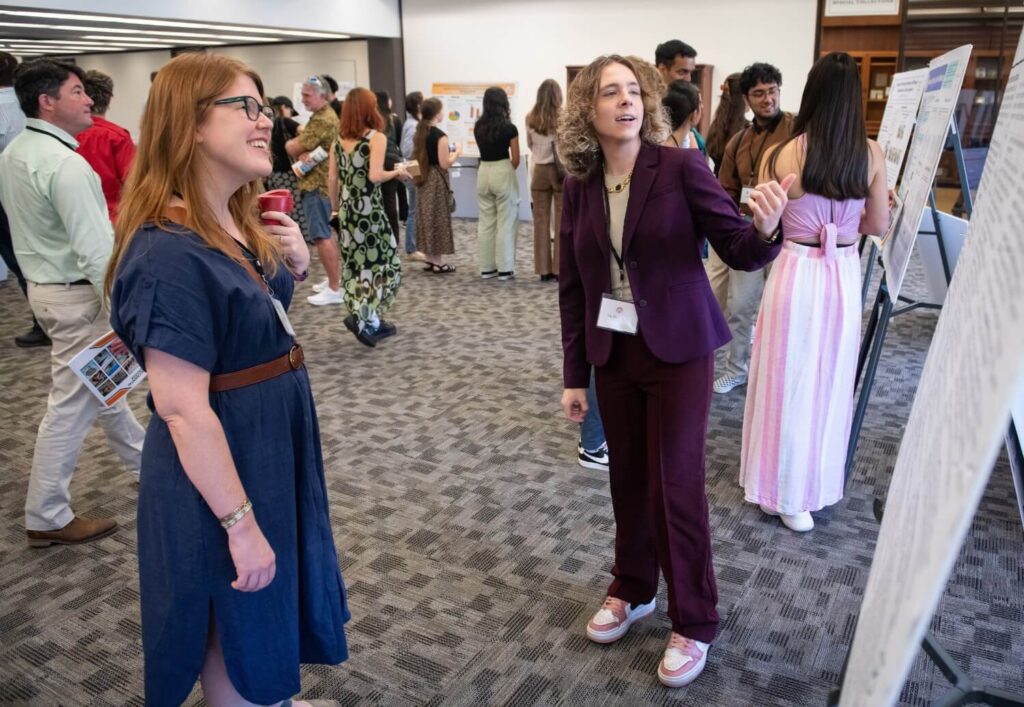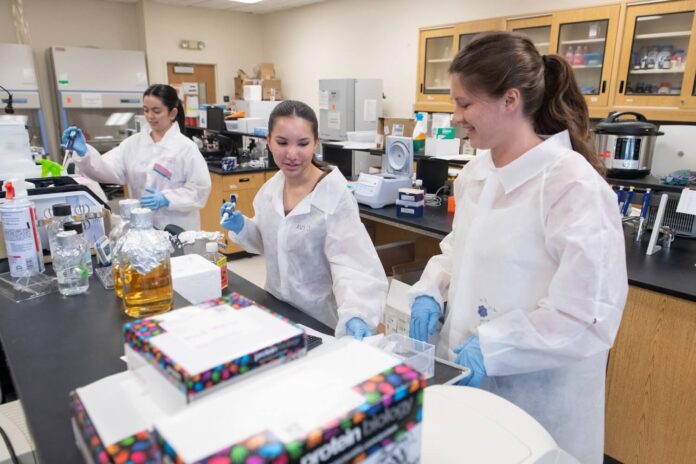The National Institutes of Health (NIH) announced cuts to funding grants sent to research institutions Feb. 7, which were blocked by U.S. District Judge Angel Kelley Feb. 10. The White House commented that the spending cuts aimed to reduce wasteful government spending, part of an initiative President Donald Trump launched in his first month in office. Director of Sponsored Research Shuna McMichael said that, for now, these cuts have not forced any administrative changes to the college’s research community.
“We’re still having faculty apply for grants,” McMichael said. “We’re still submitting grants, so we’re still doing business as normal until we get that official letter directly from the program officer or the agency telling us to do things differently.”
According to McMichael, who has more than 20 years of experience in research administration, research budgets are always subject to policy changes, and experienced researchers have learned how to adapt.
“That’s not uncommon,” McMichael said. “I’ve also seen over the course of my career where budget proposals have been reduced before you even get [research funding] awarded again. That’s a government-level decision.”
The cuts announced earlier this month applied to the indirect cost recovery rate attached to NIH grants, according to McMichael. Indirect cost recovery rates help determine the amount of funding provided for administrative and infrastructure costs of research, rather than costs directly related to research.
“That rate means the cost of doing business, for the government,” McMichael said.

At Occidental, McMichael said the indirect cost recovery rate is 45 percent on salaries and wages only. This means that for every dollar of salary and wages funded by an NIH grant, an additional 45 cents is provided for overhead costs, such as researcher salaries and wages. The proposed cuts would cap all indirect cost recovery rates at 15 percent.
E. P. Clapp Distinguished Professor of Politics and Urban & Environmental Policy Professor Peter Dreier said he believes the indirect cost recovery rate cap will force many medical school research projects to shut down.
“That’s a death wish for the administrative side [of] medical schools,” Dreier said. “They can’t operate.”
Dreier said he sees Trump’s decisions as part of an ideological crusade aimed at institutions seen as hotbeds of left-wing extremism that might threaten his power or legitimacy.
“On the one hand, this is an attack on science, medicine and public health; on the other hand, it’s an attack on universities and colleges,” Dreier said. “Trump and his inner circle of MAGA conspiracy people think of colleges and universities as key elements of liberal ideas and action in America.”
The cuts are an intimidation tactic, Dreier said, that can signal further hostility from the federal government toward academic and research institutions, even if the present changes have little impact.
“I’m sure there are presidents and trustees of universities who are worried about the funding, whether it’s Pell grants or NIH grants or other forms of federal funding,” Dreier said.
According to Dreier, though the cuts will primarily hurt institutions and universities with larger research programs, Occidental faculty have conducted life-saving research using outside funding, citing Urban & Environmental Policy Associate Professor Bhavna Shamasunder’s research on the health risks that oil wells pose to nearby residents, and without adequate support, projects like Shamasunder’s are in danger of being canned.
“The city and the state passed a bill last year or the year before to ban oil drilling in LA,” Dreier said. “It was her research that helped substantiate the dangers of living or working near an oil well.”

Assistant Professor of Chemistry Raul Navarro said via email that these changes will hamstring his freedom to research critical health issues.
“I think this is a move in the wrong direction, and ultimately cripples our collective ability to explore, discover and publish on research that directly impacts human health,” Navarro said via email.
Navarro, who received $341,831 in NIH funding for research during fiscal year 2023 — of which $91,980 was indirect costs — said this move makes him anxious about the future of his research.
“Without proper maintenance of our research facilities, or personnel who help me write and submit grants or ensure that our instruments are working properly, or access the databases that I rely on to inform research projects, how am I supposed to carry out impactful research, or any research for that matter?” Navarro said via email.
Associate Professor of Diplomacy & World Affairs Igor Logvinenko said via email that the changes will be a detriment to morale among faculty. He also said the research community at Occidental will face steeper competition from institutions that boast bigger endowments for research.
“Many faculty, especially in the sciences, have opportunities in for-profit industries that offer better compensation, top-tier staff and superior equipment,” Logvinenko said via email.
According to McMichael, given its smaller size, Occidental’s research program has one of the strongest portfolios she has seen.
“[Our] research portfolio is one of the largest at an institution labeled as a predominantly undergraduate, or predominantly teaching, institution that doesn’t have a graduate program,” McMichael said.
Despite this, Logvinenko said securing alternative funding from private sources will be difficult if federal funding is limited.
“Most other institutions will compete for this limited private foundation support,” Logvinenko said.
According to Lawrence Gostin, a public health law expert at Georgetown University, Judge Angel Kelley’s decision will likely not be final and could be appealed to the Supreme Court.
For now, McMichael said the status quo has been maintained financially on the administrative side until an official order says otherwise.
“We’re still doing business as normal regardless of what Trump is doing,” McMichael said. “[When] we get the formal notification from the agency itself to stop, then we’ll have to take action.”
Contact Noah Kim at nkim4@oxy.edu
![]()




































